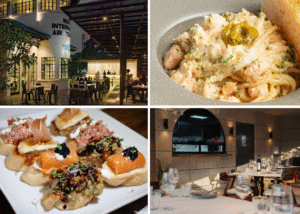The hospitality industry, encompassing both hotels and restaurants, has experienced a remarkable transformation driven by advancements in technology. As businesses strive to enhance customer experiences, streamline operations, and stay competitive, technology has become an indispensable component of their strategy. This blog post explores the pivotal role of technology in hotel and restaurant management, highlighting the key trends and innovations shaping the industry.
Enhancing Customer Experience
1. Personalization Through Data Analytics
Modern hotels and restaurants are leveraging data analytics to offer personalized experiences. By analyzing customer preferences and behavior, establishments can tailor services to individual needs. For instance, hotels use customer data to customize room settings, recommend local attractions, and offer personalized discounts. Restaurants, on the other hand, use analytics to suggest menu items based on past orders and dietary preferences.
2. Mobile Applications and Online Platforms
Mobile apps and online platforms have revolutionized the way customers interact with hotels and restaurants. Guests can now book rooms, check in, and request services through hotel apps, enhancing convenience and reducing wait times. Similarly, restaurant apps enable customers to make reservations, order food for delivery or pick-up, and provide feedback, creating a seamless dining experience.
Streamlining Operations
1. Property Management Systems (PMS)
Hotels rely heavily on Property Management Systems to manage reservations, check-ins and check-outs, room assignments, and billing. Modern PMS solutions integrate with other hotel systems, such as housekeeping and maintenance, ensuring efficient operations and quick resolution of issues.
2. Inventory Management Software
Restaurants use inventory management software to track stock levels, manage orders, and reduce waste. This technology ensures that ingredients are always fresh and available, helping to maintain food quality and minimize costs.
Boosting Efficiency with Automation
1. Automated Check-In and Check-Out
Automated kiosks and mobile check-in/check-out options are becoming standard in many hotels. These technologies reduce the need for front desk staff, speed up the process, and provide a contactless experience, which is particularly important in the post-pandemic era.
2. Kitchen Automation and Robotics
In the restaurant sector, kitchen automation and robotics are gaining traction. Automated kitchen equipment, such as smart ovens and fryers, ensures consistent cooking times and temperatures. Some restaurants are even experimenting with robotic chefs to prepare dishes, enhancing efficiency and reducing human error.
Ensuring Safety and Compliance
1. Health and Safety Monitoring
Technology plays a crucial role in maintaining health and safety standards. Digital thermometers, automated sanitization systems, and contact tracing apps help hotels and restaurants comply with health regulations and ensure the safety of guests and staff.
2. Cybersecurity Measures
With the increasing reliance on digital systems, cybersecurity has become a top priority. Hotels and restaurants are investing in robust cybersecurity measures to protect customer data and prevent breaches, thereby building trust and safeguarding their reputation.
Future Trends
1. Artificial Intelligence (AI) and Machine Learning
AI and machine learning are set to further revolutionize the hospitality industry. Predictive analytics can help hotels forecast demand and optimize pricing strategies. AI-powered chatbots provide instant customer support, handling common queries and freeing up staff for more complex tasks.
2. Virtual and Augmented Reality (VR/AR)
VR and AR are emerging as powerful tools for marketing and customer engagement. Virtual tours of hotel rooms and facilities allow potential guests to experience the property before booking. AR menus in restaurants can provide interactive and immersive dining experiences, showcasing dish ingredients and preparation methods.
The growing reliance on technology in hotel and restaurant management is reshaping the industry, offering unprecedented opportunities for enhancing customer experiences, improving operational efficiency, and ensuring safety and compliance. As technology continues to evolve, businesses that embrace these innovations will be well-positioned to thrive in an increasingly competitive market. Investing in the right technological solutions not only boosts efficiency but also drives customer satisfaction, ultimately leading to sustained success in the hospitality industry.




